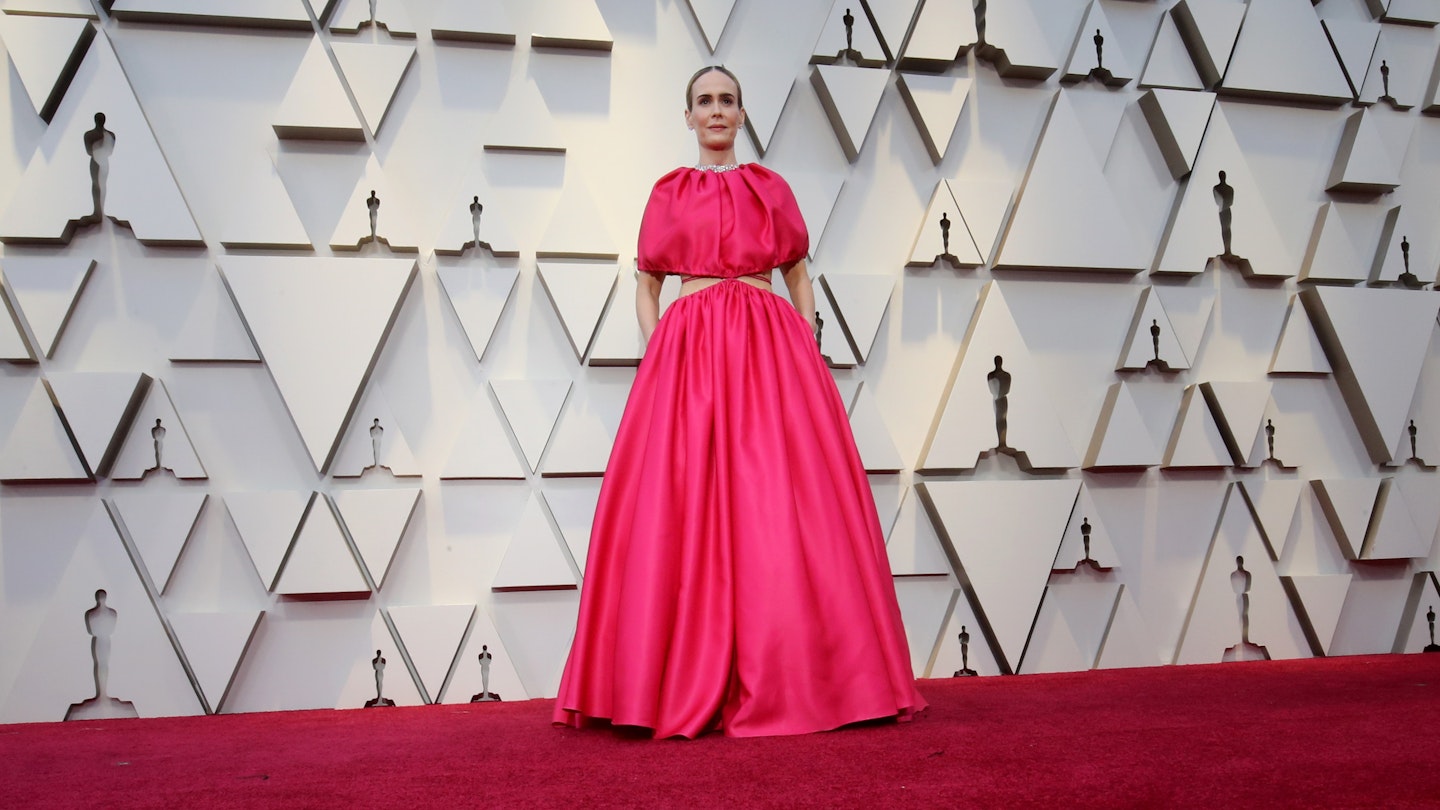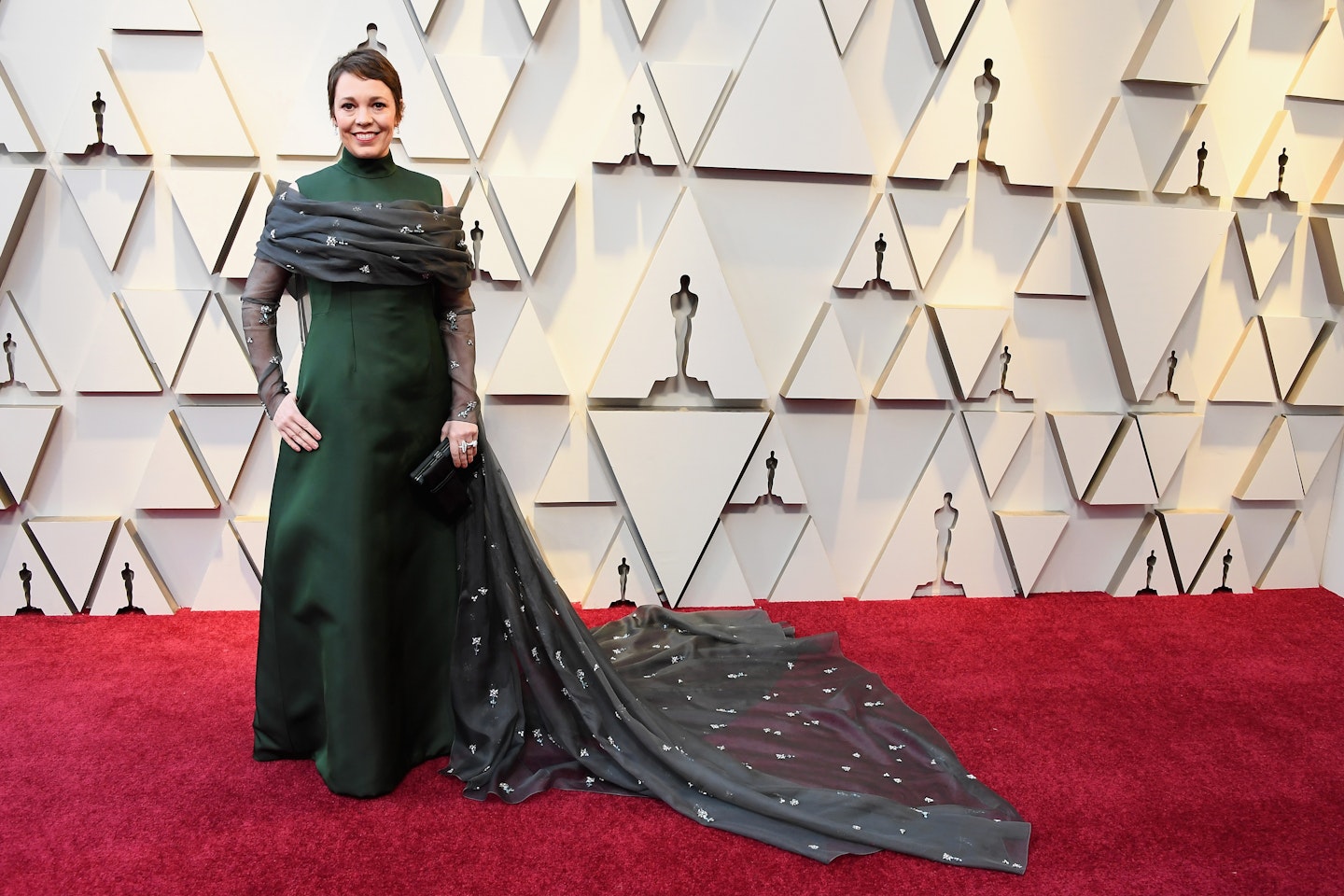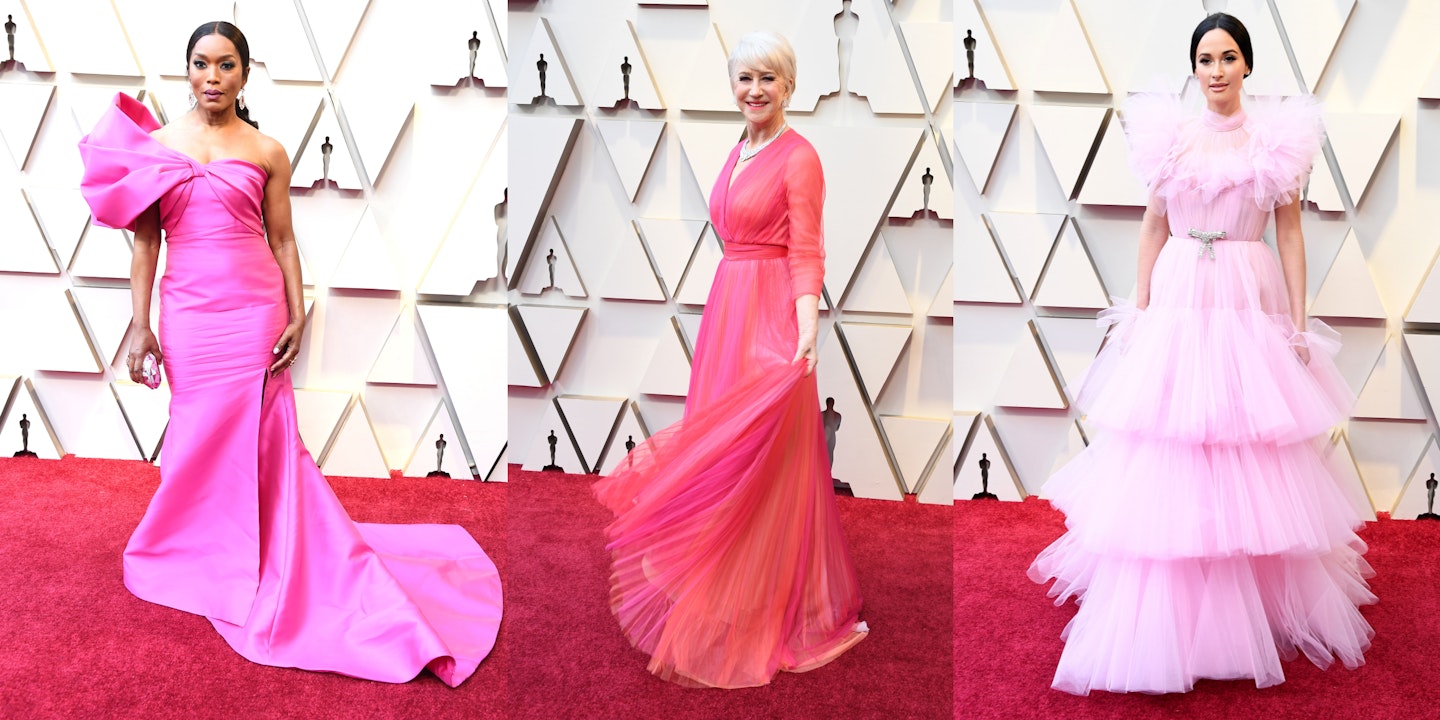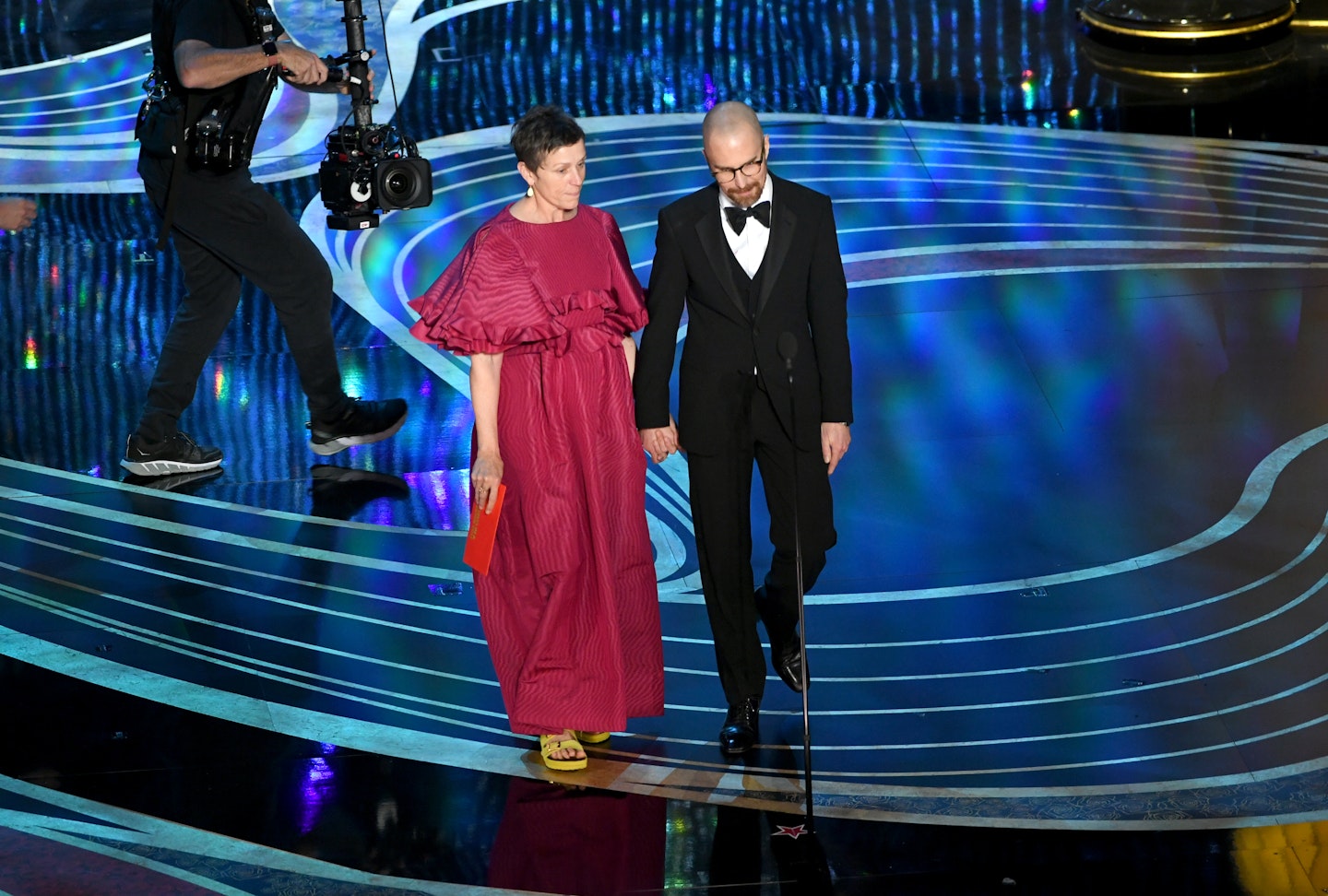Before every awards season, the cultural conversation tends to be dominated by speculation and assumption of what, in terms of fashion, will appear on the red carpet. While this has become expected, it has never been so pervasive as during the last year, as the world attempted to face life in a post-#MeToo landscape. With women left grappling with the consequences of the movement – which ultimately addressed the power imbalance between men and women in a way society has rarely seen before – the question of what to wear on a red carpet seemed a strange concept to be forced to consider. And yet, while many continue to dismiss fashion as frivolous and irrelevant in a political context, it can be a tool for great expression, change and – as last year’s Golden Globes proved – protest.
While the obvious response to “What should a woman wear on the Oscars red carpet?” is undoubtedly “Whatever the hell she wants”, it was nevertheless a joyful surprise that this year, that seemed to be exactly what actually happened. The red carpet was awash with gowns, trouser suits and all-in-ones that looked as though they had been picked for all the right reasons – namely because a lot of them had pockets.

The feminist history of pockets is well documented, with clothing adapting to provide men with practicality and women with, well, anything but. Around the time of the French Revolution, the woman’s silhouette changed rather dramatically, leaving no room for pockets of any kind. Thus, women were destined to be weighed down by cumbersome handbags, while men were permitted to go about their daily business with two free hands – imagine! The presence of so many pockets at this year’s Oscars, therefore, felt like two fingers up to the patriarchy. There was Gemma Chan in a magnificent magenta gown by Valentino, hands firmly in pockets as she posed for the paparazzi; there was Sarah Paulson in a voluminous Brandon Maxwell dress with cut-out details just above her pockets and then there was Olivia Colman with her Prada pockets.

Mary Fellowes, Colman’s stylist, spoke to the New York Times about the story behind the dress, revealing that they both worked very closely with Prada to achieve Colman’s perfect gown. “Fashion should enhance and empower women; it shouldn’t shrink them,” Fellowes said, before explaining that she and Colman look to work with designers who have associations they admire. “They decided that if Ms. Colman was going to endorse a brand by wearing it on the red carpet, it should have associations that mattered to her,” stated the Times article. “It should ideally be, for example, family-owned; make efforts toward sustainability; and maybe involve another working mother (Ms. Colman has three children).”

The major trend of the evening was, without question, big, pink dresses. Were the women of Hollywood reclaiming the colour that is so traditionally associated with an ideal of femininity that now seems so outdated and binary? Perhaps. Or perhaps they were all channeling Killing Eve’s Villanelle and her Molly Goddard tulle dress? Either way, the bigger – and the pinker – the dress, it seemed, the better. The true hero of the night in pink? It had to be Frances McDormand who took to the stage in Valentino couture paired with yellow suede Birkenstocks, made especially for her.

Among all the ruffles, frills, flounces and Birkenstocks was possibly the most interesting red carpet the Oscars has seen in a very long time. Well, at least since Björk’s 2001 Oscars appearance as a swan, anyway. What does red carpet dressing look like in the wake of #MeToo and #TimesUp? It looks like women disregarding prescriptive dress codes and doing whatever the hell they want. It looks really, really great.
